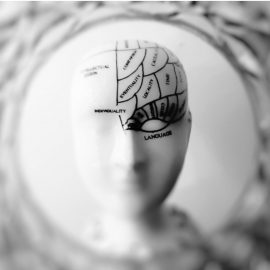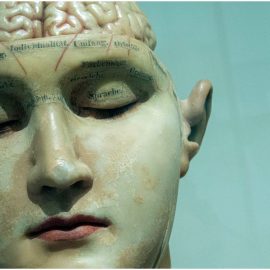
This is a free excerpt from one of Shortform’s Articles. We give you all the important information you need to know about current events and more.
Don't miss out on the whole story. Sign up for a free trial here .
How common is brain fog after Covid-19? What are some other causes of the increase in cognitive impairment?
More Americans are reporting that they’re having trouble with attention, memory, and focus. Many use the term “brain fog” to describe what they’re experiencing. Some experts think it could be linked to Covid-19.
Keep reading to learn why many are struggling with brain fog after the pandemic.
What’s Behind Our Trouble With Thinking and Remembering?
Difficulty remembering, an inability to focus, a lack of mental clarity. All of these symptoms come together under the evocative label, “brain fog.” After Covid-19, this new word entered our vocabulary to help us make sense of the virus and its impacts on our bodies and minds. But this collection of cognitive symptoms isn’t unique to Covid-19. In fact, it’s been reported by patients with a wide variety of medical conditions for many years, and it seems to be becoming more common.
Why Do We Call It “Brain Fog”?
The modern idea of brain fog dates back to the early 1800s, when German physician Georg Greiner used the term “clouding of consciousness” to refer to the cognitive issues that accompany delirium. The term “brain fog” came into use in the 1990s, when people used it to describe the cognitive effects of myalgic encephalomyelitis and some other autoimmune conditions.
Because medicine requires people to put symptoms into words and to find a way to tell a story about what they’re experiencing, the language we use to describe symptoms matters greatly. Some advocates say that relying on a term like “brain fog” to describe all Covid-related neurological or psychological symptoms can make it sound as if everyone’s experience with brain fog is the same, effectively downplaying the seriousness of the condition for those with the most severe symptoms.
“Brain fog” also makes the condition sound temporary, like a cloud that rolls in overnight and evaporates by mid-morning. This can make it harder for people to be taken seriously and to access the resources and support they need, such as medical leave and disability accommodations at school or work. Some experts use the term “cognitive impairment” to better capture the seriousness of their patients’ experiences.
What Causes Brain Fog?
Brain fog isn’t a clinical diagnosis. Instead, the term describes symptoms of cognitive impairment, which can have many different causes and manifest in many different ways. People who have experienced brain fog explain it as an array of symptoms that affect their ability to think, remember, and understand. They might feel exhausted and forgetful, get overwhelmed by everyday tasks, struggle to concentrate, or feel that they can’t think clearly.
Brain fog isn’t a new phenomenon, though more people have become aware of it as it’s emerged as a common symptom of long Covid. It affects people with a range of different chronic illnesses, many of which cause inflammation throughout the body. Brain fog occurs in people who have HIV, in people with epilepsy after seizures, in people with cancer experiencing “chemo brain,” and in people with complex illnesses such as fibromyalgia, multiple sclerosis, lupus, and Lyme disease. It’s also part of the diagnostic criteria for myalgic encephalomyelitis, also known as chronic fatigue syndrome.
Brain fog after a Covid-19 infection can last weeks, months, or longer. Journalist Ed Yong reports that the “desperation to return to normal can be dangerous, especially when combined with cultural norms around pressing on through challenges and post-exertional malaise—severe crashes in which all symptoms worsen after even minor physical or mental exertion.” Other observers have noted that while brain fog has likely been with us for a long time, modern cultural pressures likely make us more acutely aware of cognitive challenges that prevent us from working at the pace we expect for ourselves.
Why Is It Becoming More Common?
A recent report from the Census Bureau reveals that more Americans are reporting problems with remembering, concentrating, or making decisions than at any point in the last 15 years. The number of working-age adults who report “serious difficulty” with their thinking increased by 1 million between 2020 and 2023.
Experts think that brain fog after Covid is to blame: They estimate that between 20% and 30% of people who contract Covid experience some cognitive impairment that develops or persists in the three months after their infection. These changes seem to be more pronounced for younger adults.
The stress and psychological distress that everyone—but especially young adults—experienced during the pandemic might also harm cognitive function. Some researchers think that brain fog could be a normal reaction to the trauma, uncertainty, and isolation that characterized the pandemic era. But they also say it’s important to note that brain fog isn’t a mood disorder, like depression or anxiety. Some researchers even think brain fog might function like an acquired form of ADHD, a type of neurodiversity that involves the same brain regions and neurotransmitters that seem to cause brain fog with long Covid.

Want to fast-track your learning? With Shortform, you’ll gain insights you won't find anywhere else .
Here's what you’ll get when you sign up for Shortform :
- Complicated ideas explained in simple and concise ways
- Smart analysis that connects what you’re reading to other key concepts
- Writing with zero fluff because we know how important your time is






